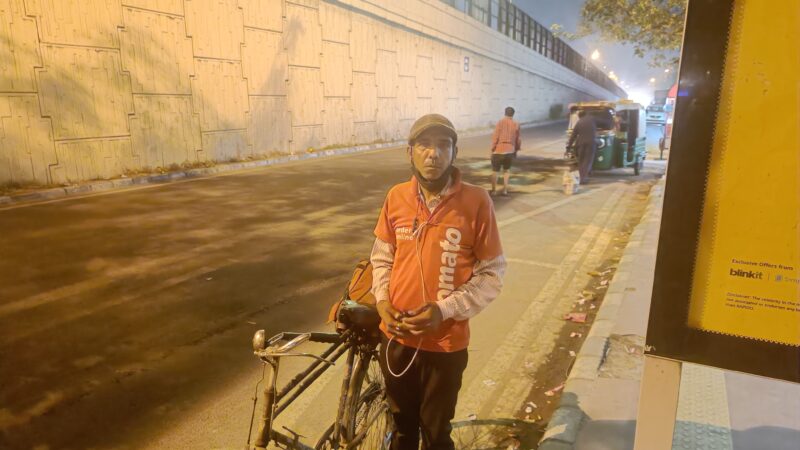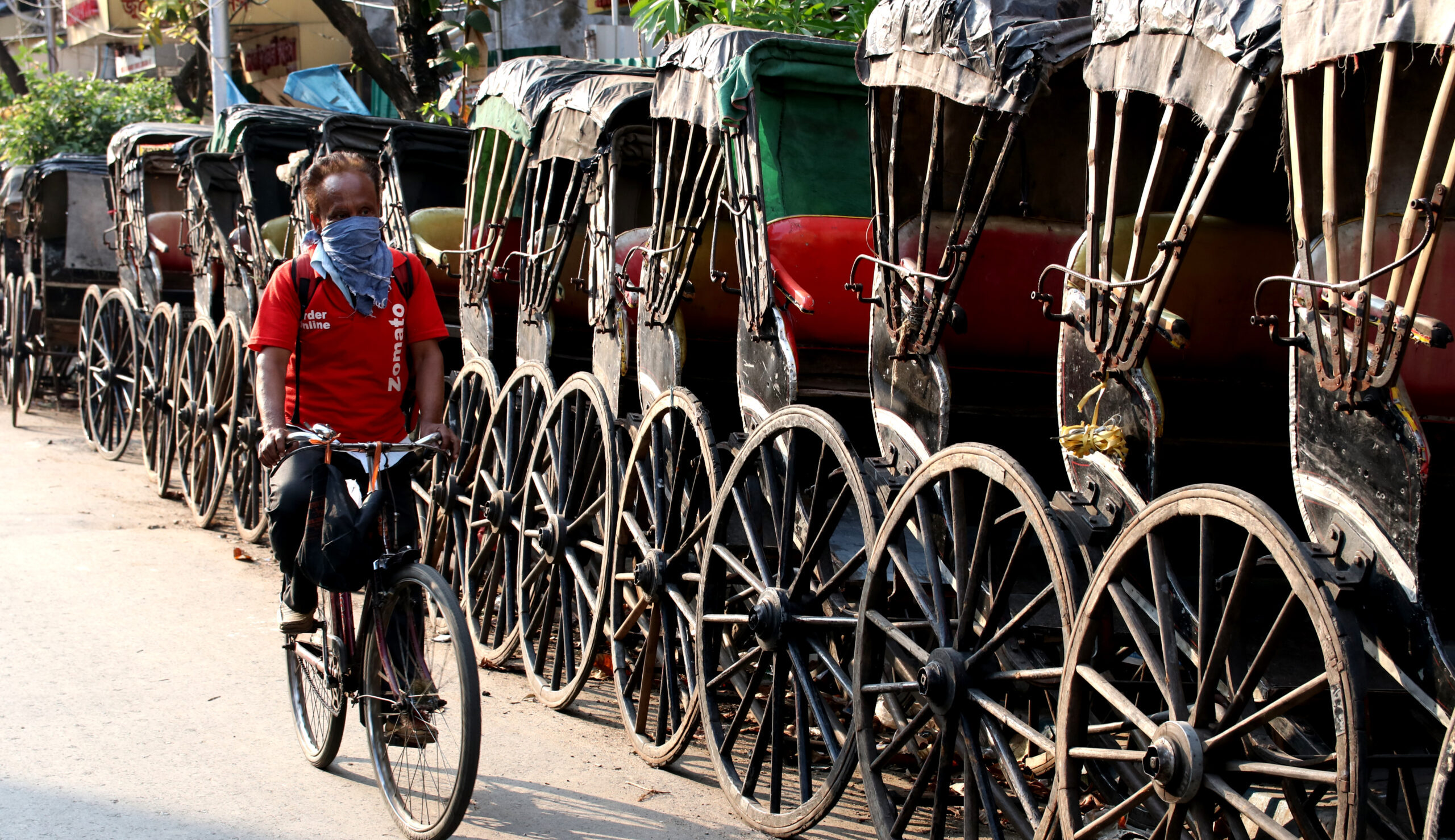It was around 40 degrees Celsius at noon, and Ashish Kumar Jaiswal was cycling from RK Puram to Vasant Kunj. He was heading towards an eatery near the Munirka bus stop to pick up a food delivery order for a customer in Vasant Kunj. Ashish is one of the thousands of ‘delivery associates’ in the capital region, who deliver food on cycles.
In this season, when many are not able to bear the sun for more than one or two hours, these delivery boys pedal for 8-10 hours a day to earn a livelihood.
Ashish’s family belongs to Lucknow and has been living in the capital for the last 30 years. Before starting work as a full-time delivery associate, he worked as a sales representative in a pharmaceutical firm where his monthly income was around Rs 20,000 per month.
In the first wave of the pandemic in 2020, Ashish’s salary was reduced to Rs 15,000 by his employer. It was further reduced to Rs 12,000 during the second wave. At that time, for him, the only alternative left was to join a food delivery app as an associate.
“I have been working with the app as a delivery associate for the last five years. Initially, I used to work as a part-time valet, but after the economic blow of Covid-19, I embraced this job full time in July last year”, says Ashish.
Ashish starts his day around 11 am and ends at around 10 pm. “I earn around Rs 800-1,000 a day, and I work for 24-25 days a month”, says Ashish.
The period from 2020 to 2021 was challenging for millions of Indians. People working in both organised and unorganised sectors have been adversely affected by the long lockdowns. Gig workers were the most affected. From daily wage labourers to delivery boys, lakhs were left unemployed or their income fell drastically.
“When the lockdown was announced, all restaurants were closed. My employer was not paying salary on time. At that time, my full-time and part-time earnings were impacted very badly”, says Jaiswal.

According to a report by Fairwork India, “2021 was marked by the unprecedented social and economic consequences of the Covid-19 pandemic. While platform workers in different sectors were affected differently, workers’ take-home earnings declined across all the platforms”.
The report further states that the ongoing pandemic has only made things worse, with an estimated half of formal salaried workers moving into informal work between late 2019 and late 2020. Just between March and April 2020, Centre for Monitoring Indian Economy (CMIE) data showed that a whopping 113.6 million people had lost their jobs.
According to Ashish, his food delivery app has provided him with Rs 10 lakh accidental insurance and Rs 2 lakh medical insurance. Moreover, OPD services worth Rs 500 are also provided in selected hospitals.
People who have lost their jobs during the pandemic view delivery services as an easy alternative to earn money. With little investment and no need for a particular skill, delivery service has become a suitable option for many.
A delivery boy working with a leading food delivery app informed us how some delivery associates register themselves as a cyclist, but use motorcycles to deliver food. When we asked him why they do this, he said, “A seven-kilometre range is set for the delivery boys who use cycles, but those who have registered a motorcycle, get orders in the 15-km range. To save time and get more orders at a short distance, many delivery associates register themselves on the app by submitting false details.”
Sunil Yadav, who hails from Bihar, was working in a hotel before he was sacked owing to the lockdown. In this situation, one of his friends suggested he register himself as a delivery boy on a food app. With no savings in hand, and with the responsibility of his family back home, he selected the cycle as the mode to deliver food.
Yadav’s daily income depends on how much he pedals in a day. “On average, I earn 800 rupees a day”, he says.
“In food delivery, your hard work decides your income. You are not bounded like you would be in an ordinary job”, he adds.
According to Yadav, he sends around Rs 6,000-10,000 a month back home, and on average, completes 15-18 orders in a day. Full-time cycle delivery boys pedal 80-90 km in a day to earn Rs 700-1,200.
In the gig economy, workers find various benefits like flexibility, independence, access to opportunity and work-life balance. On the other hand, companies view benefits as a diverse pool of flexible workers and low administrative and compliance costs.
However, disadvantages like lack of a secure job and social security, uncertain workload and lack of financial stability are some of the challenges which need attention.
According to an economic survey of 2020-21, India has become one of the largest market places for flexible staffing as a result of wider adoption of online retailing and e-commerce.
“During the period of Covid-19-induced lockdown, the increasing role of the gig economy was evident with significant growth of online retail business”, reads the survey.
Digital platforms like Amazon, Zomato, Swiggy, Flipkart and others have become enablers of jobs and provided gig jobs to millions. But there are various challenges which lie ahead for companies as well as empoyees. Not least of these is the fourth wave of Covid-19 which seems to be around the corner.





